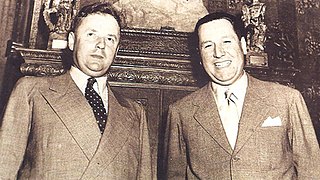A Quote by Athenagoras of Athens
We have rejected such spectacles as the Coliseum. How then, when we do not even look on killing lest we should contract guilt and pollution, can we put people to death?
Related Quotes
We do not know whether it is good to live or to die. Therefore, we should not take delight in living, nor should we tremble at the thought of death. We should be equiminded towards death. This is the ideal. It may be long before we reach it, and only a few of us can attain it. Even then, we must keep it constantly in view, and the more difficult it seems of attainment, the greater should be the effort we put forth.
We know, deep down inside, it's wrong! There's nothing you can say to ever make it right! Killing is killing, no matter how you slice it! And the ones doing all the killing should be locked up, and be forced to watch the world transform from, This evil place they've created, To the wonderful place we should be creating!
Kaplan can't understand trivialities. The triviality here is that nobody except the ultra right-wing jingoists like Kaplan are comparing atrocities by various countries. What honest people are saying seems to be incomprehensible: that we should keep to the elementary moral level of the gospels. We should pay attention to our own crimes and stop committing them. This would be true even if we were killing one person, OK? And it's even more true when we're killing millions of people.
"It almost always happens that people enjoy a few moments and then afterwards feel very guilty. The guilt arises because of the ego. The ego starts torturing them, "What are you doing? Have you decided to kill me? And I am your only treasure. Killing me? You will be destroyed. Killing me is destroying yourself."
Someone's killed 100,000 people. We're almost going, "Well done! You killed 100,000 people? You must get up very early in the morning! I can't even get down the gym. Your diary must look odd: 'Get up in the morning, death, death, death, death, death, death, death - lunch - death, death, death - afternoon tea - death, death, death - quick shower ...' "
When we hold onto the negative in ourselves it comes with endless guilt. We hold onto a lifetime of floating visions and regrets about what we should have done or should have become. Conscience recognizes wrong and tries to atone. But guilt turns into resentment. Conscience brings us closer to each other; guilt drives us apart. Create a new feeling. Every time guilt settles in your stomach, write "I forgive" on a piece of paper. Send it up the chimney, tear it up and flush it, put it in the garbage. Don't eat it.
































